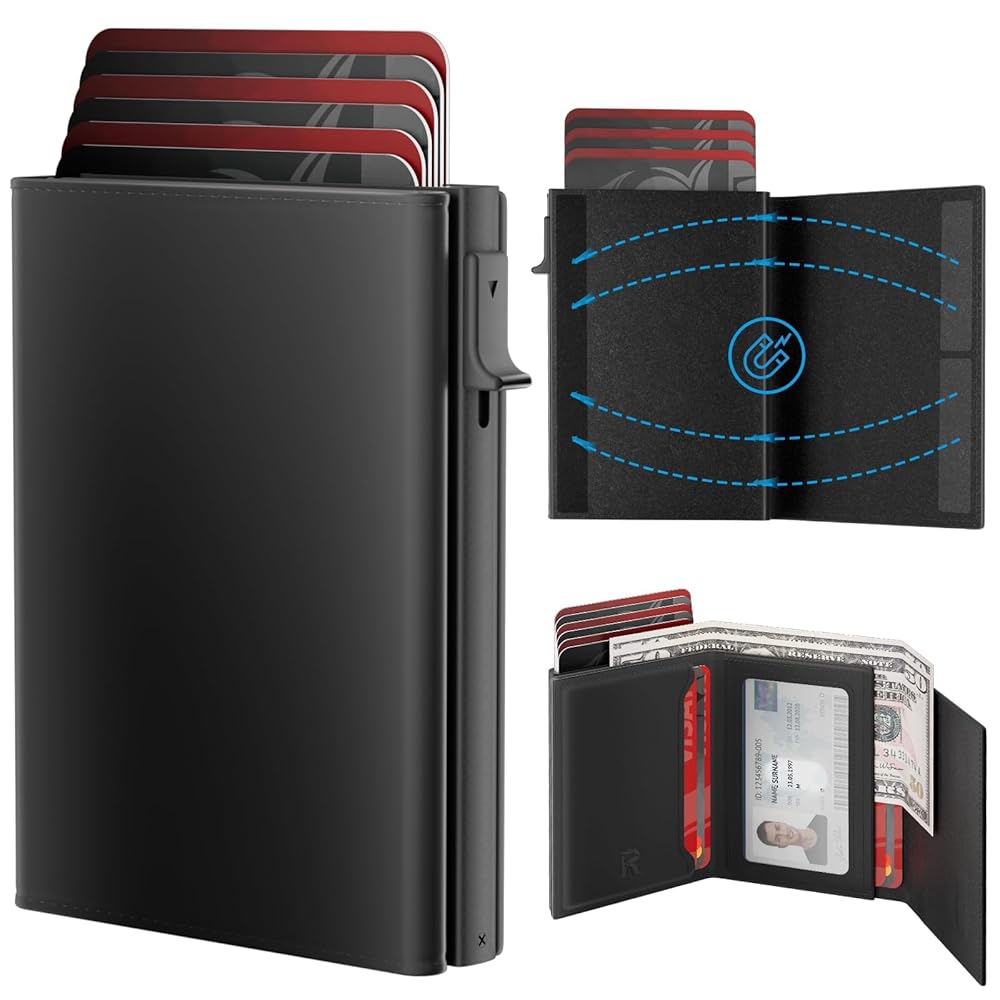What is a Smart Wallet?
A smart wallet is an advanced type of wallet utilizing modern technology. Designed for convenience, security, and efficiency, it offers more than just storing cash and cards.
Definition and Key Features of Smart Wallets
A smart wallet combines traditional wallet functions with smart technology. It can store digital currency, credit cards, and sometimes even personal data. Most smart wallets have features like RFID blocking, GPS tracking, and smartphone connectivity. Many also include Bluetooth integration to prevent loss and theft. Some versions come with digital payment functionality, allowing you to pay without carrying physical cash or cards. These features ensure seamless functionality for users in both online and offline scenarios.
How Smart Wallets Differ from Traditional Wallets
Traditional wallets focus on physical storage and often lack technological features. Smart wallets take functionality to another level by incorporating advanced digital tools. For instance, RFID protection in smart wallets prevents unauthorized access to card data. GPS tracking can help locate a lost wallet through a smartphone. Traditional wallets do not provide such assistance. Additionally, smart wallets allow for digital payments and financial tracking, which traditional wallets cannot manage. With added security and ease of use, smart wallets are revolutionizing daily financial practices.
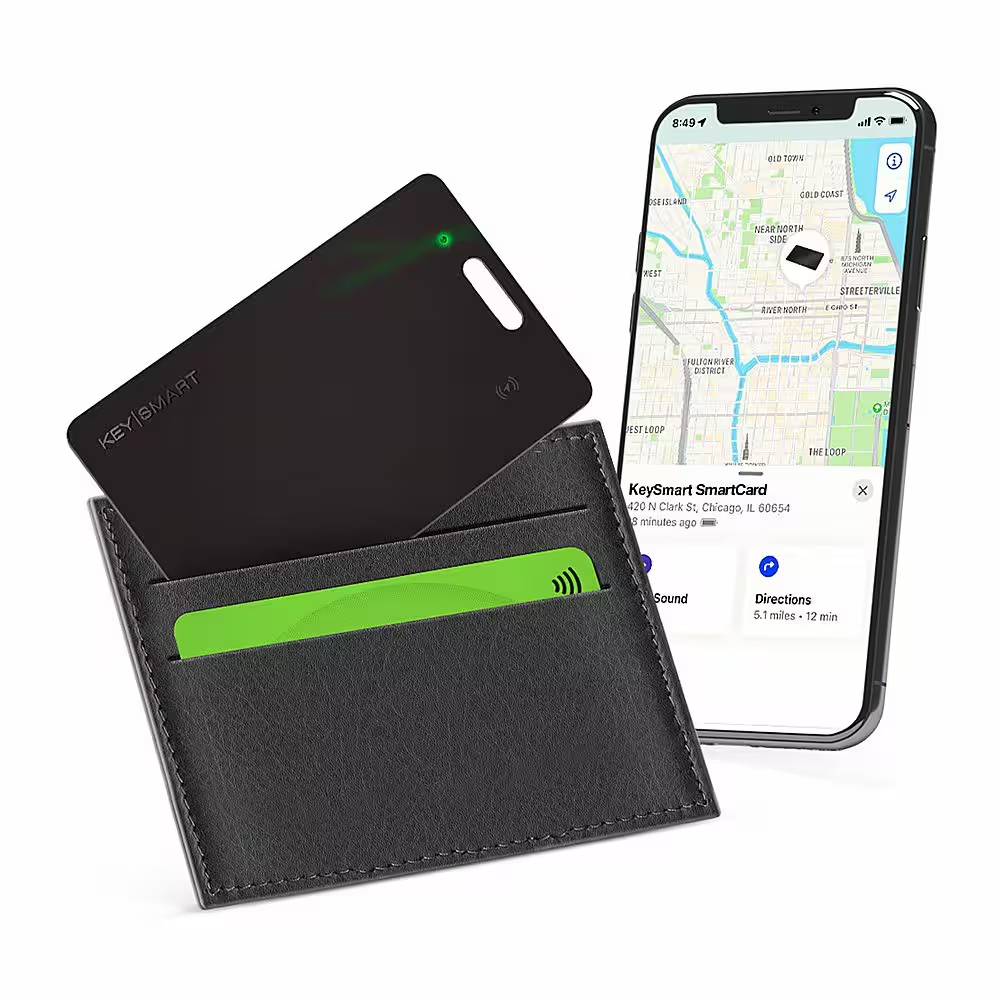
Types of Smartwallets
Smart wallets come in two main forms: digital and physical. Each type offers unique benefits and functionalities tailored to user needs. Let’s explore these two categories.
Digital Smart Wallets for Online Use
Digital smart wallets are software-based solutions for storing and managing financial assets electronically. These wallets primarily support online transactions, making them ideal for digital commerce.
Key Features of Digital Smart Wallets:
- Cryptocurrency Support: Many digital wallets allow users to store and transact cryptocurrencies.
- Online Payment Convenience: They enable secure payments for e-commerce and subscription services.
- Multi-device Access: Users can access them via smartphones, tablets, or computers.
- High-security Protocols: Features like two-factor authentication and encryption ensure asset safety.
Examples include Apple Pay, Google Pay, and PayPal. These wallets simplify online purchases while ensuring data security for users.
Physical Smart Wallets with Tech Integration
Physical smart wallets combine traditional wallet design with advanced technology. They cater to users who prefer carrying physical cards or cash but want added tech-enabled features.
Core Functions of Physical Smart Wallets:
- RFID Protection: Prevents fraud by blocking unauthorized scanning of credit cards.
- Bluetooth Tracking: Helps locate the wallet through a connected smartphone app.
- Built-in Power Banks: Some models come with power banks to charge devices on the go.
- Digital Payment Features: Integration with contactless payment technology offers greater flexibility.
Examples include wallets from brands like Ekster and Volterman. These products blend elegance and functionality, providing tech-savvy solutions for offline and online use.
By understanding the types of smart wallets available, users can choose what best suits their financial and lifestyle needs.
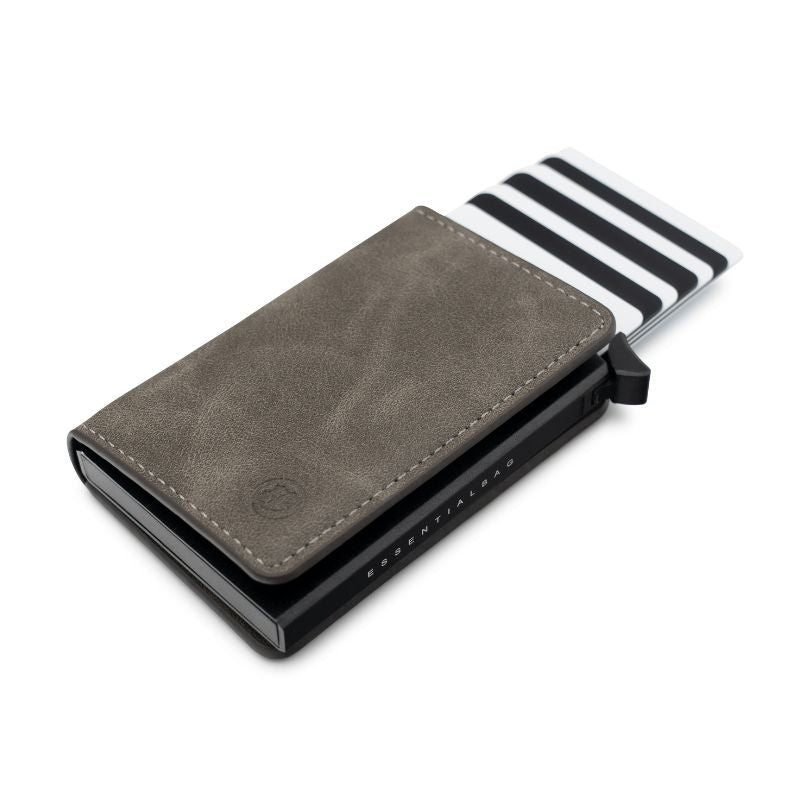
Key Benefits of Smartwallets
Smart wallets are transforming daily financial interactions with advanced features that traditional wallets lack. They offer several key benefits, making them an ideal choice for modern users.
Enhanced Security Features
Smart wallets provide strong security measures to protect your financial and personal data. They often include RFID-blocking technology to prevent unauthorized scans of your credit cards. Many physical smart wallets also have GPS tracking via Bluetooth to help locate lost wallets. Digital wallets add layers of encryption and two-factor authentication to secure online transactions. These technologies ensure safe usage both online and offline.
Convenience in Financial Transactions
Smart wallets simplify financial transactions by removing the need to carry physical cash or cards. Features like contactless payment options allow you to pay seamlessly with a tap or scan. Digital wallets make online payments quick and secure, ideal for e-commerce and subscriptions. Physical smart wallets also integrate technology to track transactions and manage multiple payment methods. The combination of these tools saves time and effort in every financial interaction.
Expense Tracking and Budgeting
Many smart wallets come with built-in expense tracking and budgeting tools. Digital smart wallets often include apps that organize spending data and help users manage finances better. Physical smart wallets can sync with other devices to offer similar insights. These features allow users to monitor expenses in real-time, making it easier to stick to budgets and achieve financial goals.
Compatibility with Cryptocurrencies
Smart wallets are crypto-friendly, allowing users to store, send, and receive digital currencies securely. Digital wallets often support popular cryptocurrencies like Bitcoin and Ethereum, enabling seamless crypto transactions. This compatibility makes smart wallets valuable for users who invest in or use cryptocurrencies regularly. It bridges the gap between traditional financial systems and emerging digital assets.
By understanding these benefits, users can fully leverage smart wallets for enhanced security, convenience, and financial control.
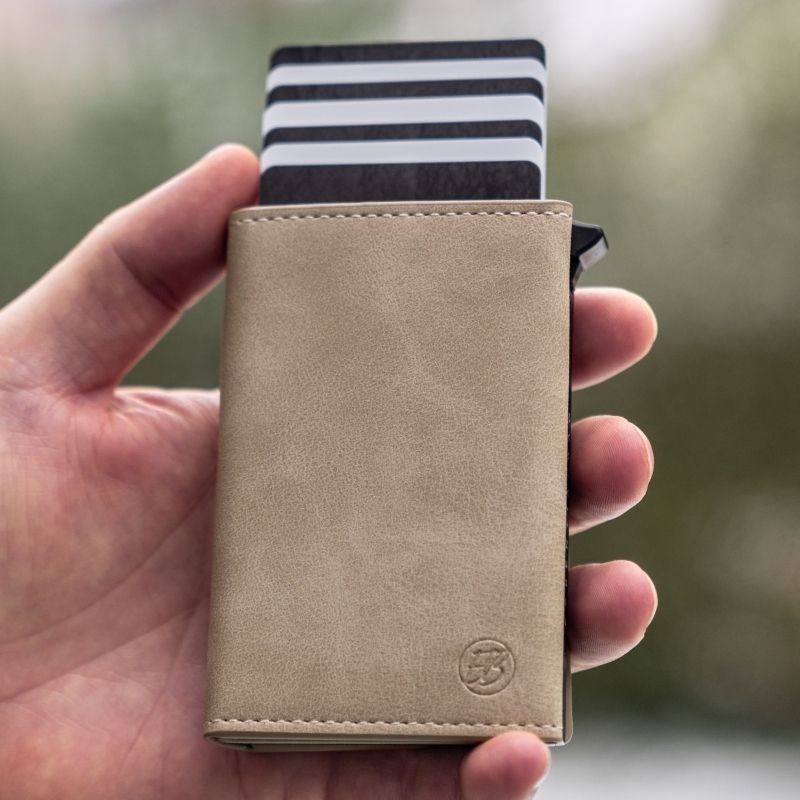
Technology Behind Smartwallets
Smart wallets are powered by advanced technologies that improve functionality, security, and user experience.
Integration of RFID and NFC Technologies
RFID and NFC technologies play key roles in modern smart wallets. RFID (Radio Frequency Identification) enables secure storage and transmission of card data to prevent unauthorized access. It blocks external scanning, which keeps financial information safe from theft.
NFC (Near Field Communication) allows seamless contactless payments. With NFC, users can tap their smart wallet or connected device to complete payments instantly. NFC integration also supports digital transactions in physical environments, offering convenience with speed.
Together, RFID and NFC enhance the security and usability of smart wallets while supporting efficient transactions for users.
Role of Blockchain in Digital Wallets
Blockchain technology is integral to digital smart wallets, especially those handling cryptocurrencies. Blockchain provides a decentralized ledger to store and track transactions securely. It ensures transparency and strengthens trust during financial exchanges.
Digital wallets using blockchain enable safe cryptocurrency storage and transactions. They apply encryption and decentralized protocols to protect user assets from tampering. Blockchain also facilitates peer-to-peer payments without needing intermediaries, reducing fees and processing times.
By integrating blockchain, smart wallets offer robust security, anonymity, and efficiency, especially for cryptocurrency enthusiasts.
Trends Shaping the Future of Smart Wallets
Smart wallets are evolving with technological advancements and changing payment preferences. Several trends are shaping their growth and future.
Increasing Adoption of Contactless Payments
Contactless payments are becoming standard in financial transactions. Smart wallets leverage NFC for quick and secure payments. Users can tap their wallet or phone to pay instantly. This simplicity drives the adoption of smart wallets worldwide.
Retailers are increasingly supporting contactless payment systems. Many now offer compatibility with digital smart wallets apps. The shift toward cashless and cardless transactions boosts demand for technologies that smart wallets provide.
Growth in Mobile Payment Solutions
Mobile payment solutions are transforming how people manage their finances. Smart wallets integrate seamlessly with platforms like Google Pay and Apple Pay. This allows users to make payments directly from their smartphones.
Many mobile apps also offer advanced financial tools. Features like bill splitting and transfer tracking are part of these solutions. Combining such functionalities with physical smart wallets creates a comprehensive financial management system.
The smartphone market’s continual growth fuels this trend. As more people use mobile devices, the reliance on mobile payment solutions increases.
AI and Machine Learning in Expense Management
Artificial Intelligence (AI) and Machine Learning (ML) enhance smart wallet features. These technologies analyze spending patterns and provide insights for better budgeting. Digital smart wallets use AI to organize expenses, categorize transactions, and predict future spending.
Physical smart wallets can integrate with apps that use AI tools. This enhances financial planning and helps users meet savings goals. AI also improves fraud detection, instantly alerting users of suspicious activities.
As AI evolves, smart wallets will offer increasingly personalized financial management options. This deep integration ensures users can manage finances efficiently and securely.
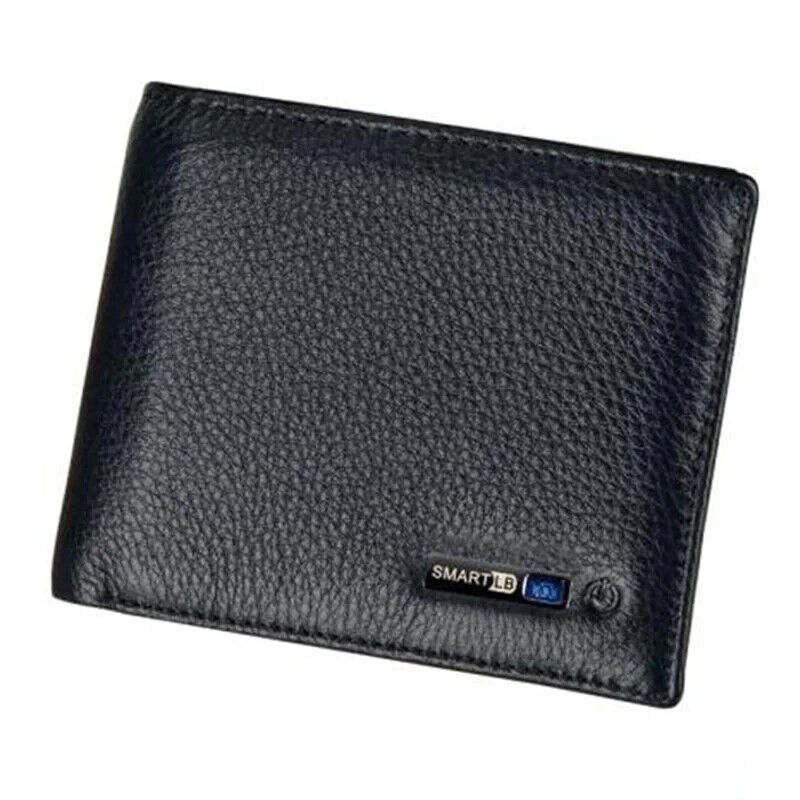
Factors to Consider When Choosing a Smart Wallet
Selecting a smart wallet requires careful thought to ensure it meets your needs and expectations. Here are key factors to evaluate:
Security and Privacy Features
Security is the cornerstone of any smart wallet. Look for features that protect your data:
- RFID Blocking: Shields your cards from unauthorized scanning.
- Data Encryption: Ensures sensitive information stays safe during online transactions.
- Two-Factor Authentication: Adds an extra layer of security for login and payments.
- Tracking Technology: GPS or Bluetooth tracking helps locate your wallet if lost.
A secure smart wallet minimizes the risks of fraud and data breaches, giving you peace of mind.
Compatibility with Your Lifestyle
Your smart wallet should align with your daily habits and financial preferences. Consider these aspects:
- Physical vs Digital Needs: Choose a physical wallet, digital wallet, or a combination based on your usage.
- Ease of Use: Select a wallet with a user-friendly interface and accessible features.
- Connectivity Options: Ensure compatibility with your smartphone, smartwatch, or other devices.
- Desired Features: Check for functionalities like cryptocurrency support or power bank integration.
A wallet that complements your lifestyle will enhance convenience and usability.
Price and Value for Money
Price is an important consideration when investing in a new smart wallet. Evaluate these factors:
- Features vs Cost: Ensure the wallet covers your essential needs within your budget.
- Durability: High-quality materials might justify a higher price due to longer-lasting performance.
- Brand Reputation: Opt for reputable brands that offer warranties and customer support.
- Additional Expenses: Consider potential costs for accessories, apps, or subscriptions.
Balancing price with utility ensures you get the best value for your money.
By analyzing these factors, you can confidently choose a smart wallet that meets your expectations.
Challenges and Concerns with Smartwallets
Smart wallets offer advanced features and convenience, but they come with challenges and concerns. Users must address these issues to use smart wallets effectively and securely.
Potential Risks of Hacking and Data Breaches
Digital technology makes smart wallets vulnerable to cyberattacks. Hackers might exploit security loopholes to steal sensitive data. Personal information, passwords, and account details are at risk. Even advanced encryption sometimes fails against sophisticated attacks. If a wallet connects to unsafe networks, it increases the chance of data theft. Users must adopt safety measures, like using strong passwords and enabling two-factor authentication, to minimize risk.
Physical smart wallets also have security concerns. While features like RFID blocking prevent unauthorized scans, flaws in implementation can expose users. Stolen or lost wallets with weak tracking can fall into the wrong hands. Users should ensure their wallets have robust tracking and recovery options.
Dependence on Technology and Power
Smart wallets highly depend on technology, which creates reliability concerns. Digital wallets need stable internet and device compatibility. If systems face outages or glitches, accessing payment options becomes problematic. This could disrupt essential transactions for users.
Physical smart wallets often include Bluetooth and GPS features. These technologies rely on power to function. If the wallet’s battery dies, key functionalities like tracking cease. Similarly, wallets with charging capabilities lose utility when the power bank depletes.
The reliance on technology also creates a learning curve for new users. Not everyone easily adapts to advanced tools, which limits usability. Additionally, rapid tech updates can make older smart wallet obsolete. Users must invest time in understanding wallet functions and staying updated on new tech.
By addressing these risks and limitations, individuals can prepare for smarter and more secure wallet usage.

The Future of Smartwallet Technology
Smart wallets are at the forefront of financial innovation. Driven by emerging technologies, their future looks promising. Let’s explore the developments shaping this market.
Upcoming Innovations in the Smart Wallet Market
The smart wallet market is set to see groundbreaking changes. New tech trends will redefine how wallets function:
- Voice-Enabled Payments: Integration of voice assistants like Alexa or Siri will allow hands-free transactions.
- Biometric Security: Fingerprint and facial recognition will replace PINs, boosting security levels.
- Solar-Powered Wallets: Some wallets will feature solar charging, eliminating battery-related worries.
- Augmented Reality (AR): AR-powered apps will help users visualize expenses and plan budgets interactively.
- Multi-Currency Management: Future wallets may handle multiple currencies, both fiat and crypto, seamlessly.
These innovations aim to enhance security, reduce user effort, and provide comprehensive financial solutions.
How Smart Wallets Will Influence Financial Behavior
Smart wallets are likely to alter financial habits significantly. Here’s how they will impact users:
- Greater Focus on Budgeting: Real-time tracking tools will encourage users to manage money better.
- Reduced Cash Dependency: Contactless payments and digital transactions will minimize cash usage.
- Increased Crypto Adoption: Easy cryptocurrency storage and use will drive interest in digital assets.
- Enhanced Saving Habits: AI-driven insights will help users identify saving opportunities.
- Improved Financial Literacy: Analytics in smart wallet apps will educate users about spending patterns and financial goals.
By providing advanced tools, smart wallet will promote smarter, secure, and efficient financial decisions.
Smart wallets are not just tools—they’re shaping the future of how we handle money. These advancements will create a more connected and efficient financial future for everyone.
